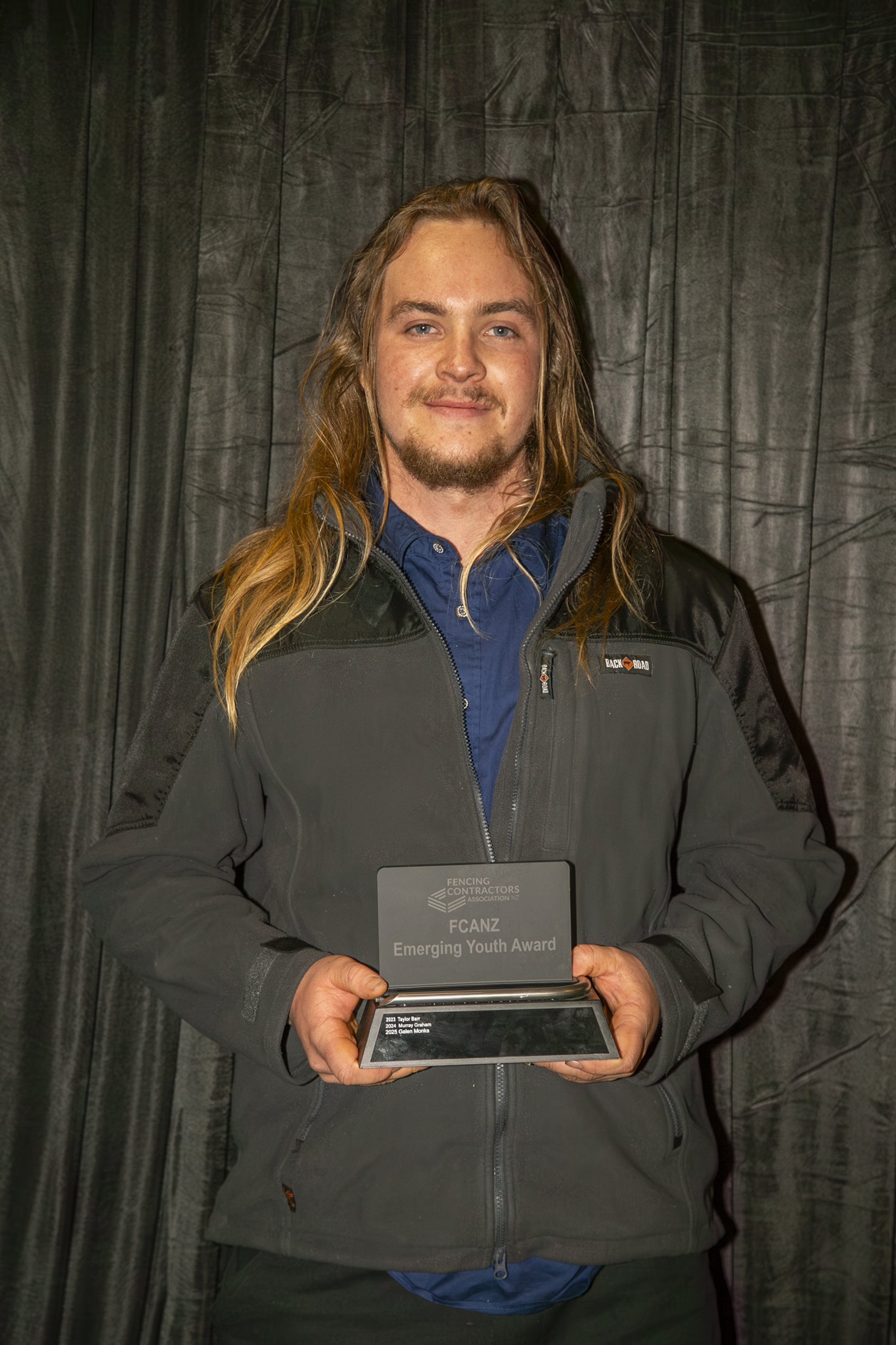
The Custom Fencing crew leader was "surprised" to win the emerging talent award at the Fencing Contractors Association New Zealand industry awards in Taupo last month.
"I was up against some pretty stiff competition."
It was "nice" to win the award for the first time, after being a finalist in the same category last year
The 24-year-old was presented a batten stapler gun for winning the award.
He realised he wanted to be a fencer during his home schooling on his family’s lifestyle block, featuring sheep and horses, in Dunedin.
"Without having to go to school every day, I had the opportunity to fence at home."
As he was too young to work towards a formal fencing qualification, he taught himself how to fence by watching tutorial videos on the internet and sourcing industry best practice guides including from the association.
"Whatever I could get my hands on."
Age 15, he accepted a job offer in the construction industry but decided he preferred fencing about two years later.
He has worked for Nick Terry, of Custom Fencing in East Otago, since the start of 2020.
During his time in the industry, he had completed Level 3 and 4 fencing qualifications at NorthTec Tai Tokerau Wānanga.
The appeal of the fencing industry was being able to "chisel away", while breathing in the fresh air of the great outdoors.
"It is satisfying work."
His fencing work was generally in the wider Dunedin area including the Strath Taieri.
When he started at Custom Fencing, he often worked around Middlemarch.
"It was good country out there, very rewarding."
His favourite fence to install features sheep and beef netting.
The work was a combination of farm, civil and industrial.
Currently he was in a crew halfway through a job installing a perimeter fence around new infrastructure to store dairy products, such as milk powder, at Port Otago in Port Chalmers.
"She’s a big job. I’m going to be there till Christmas, easily."
A long-term dream was to start his own fencing company, possibly in North Otago or South Canterbury.
His body was holding up to the physical work, he said.
"I don’t know if I’d say the same thing in 10 years time, but there’s only one way to find out."
The "hard yakka" could result in a high turnover of staff in the industry but he was in it for the long haul.
"This will be me for life."
Association president Phil Cornelius said the awards recognised more than skill.
"They celebrate dedication, leadership, and the willingness to give back. Every finalist and winner is making the industry stronger, and it’s a privilege to acknowledge their work."














